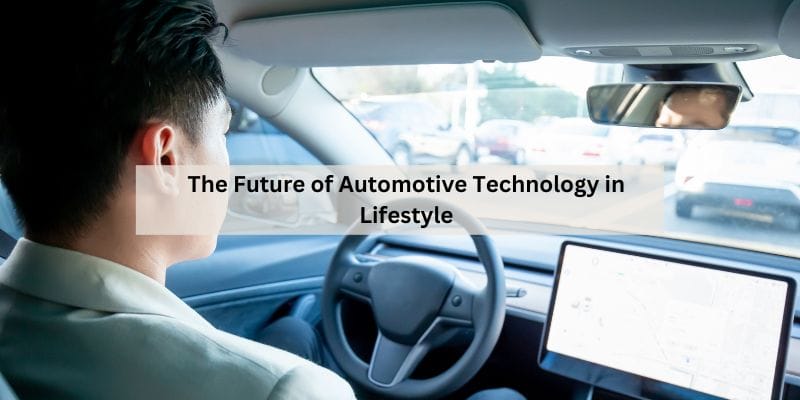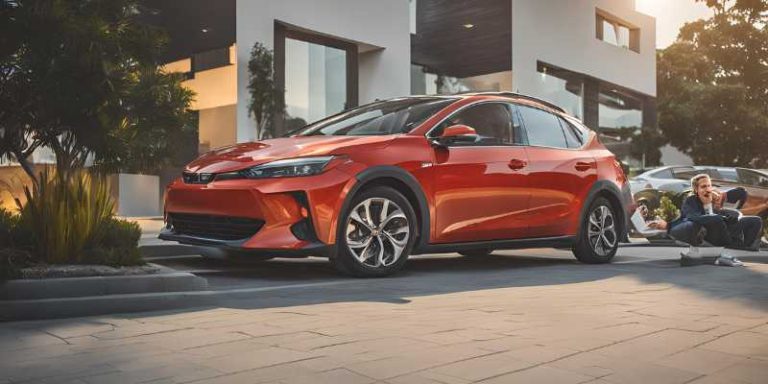The Future of Automotive Technology in Lifestyle
The future of automotive technology is set to revolutionize our lifestyle with electric, autonomous, connected, and sleek vehicles dominating the roads in just a few years’ time. These major trends driven by technological advancements will not only provide a safe and efficient mode of transportation but also redefine the way we traditionally think of cars.
With the integration of smart technologies through the Internet of Things (IoT), our automotive experience will become more automated, seamless, and convenient. The automotive industry is racing towards a new world driven by sustainability, changing consumer behavior, and the rise of electric vehicles.
This transformation is set to create a future where transportation is not only eco-friendly but also enhances our overall lifestyle.
Electrification Of Vehicles
The future of automotive technology is rapidly evolving, with the electrification of vehicles leading the way. The rise of electric vehicles is driving a shift towards sustainability and zero tailpipe emissions. As a result, the automotive industry is experiencing a significant transformation, paving the way for a more environmentally friendly and efficient future. Electric vehicles are not only reducing the carbon footprint but also offering a glimpse into a more sustainable transportation ecosystem.
Autonomous Driving Technology
The future of automotive technology in lifestyle is rapidly evolving, especially with the development of autonomous driving. Advancements in driverless technology have paved the way for enhanced safety features and the integration of AI. These innovations are reshaping the way we perceive transportation and are set to revolutionize our daily lives. From self-driving vehicles to AI-powered safety mechanisms, the future of automotive technology holds the promise of a more convenient, efficient, and secure lifestyle.
Connectivity And Iot Integration
The future of automotive technology is rapidly changing as the industry is shifting towards digitalization and automation. With the rise of connectivity and IoT integration, vehicles are becoming more than just a mode of transportation. Automotive connectivity trends show that cars are becoming digital hubs, enabling drivers to access various services and applications that enhance their driving experience.
Smart technologies through IoT will create an efficient, automated lifestyle for drivers. Major trends indicate that cars of the future will be electric, autonomous, connected, and sleek, with zero-pipe emissions. Digital technology and automotive software and service advancements are redefining the way we traditionally think of cars. The automotive industry is racing towards a new world driven by sustainability and changing consumer behavior, encompassing electric vehicles and autonomous driving technology.
Innovations In Automotive Software
Customization and in-car subscriptions are revolutionizing automotive software. With software-defined vehicles, personalized features and updates can be easily integrated, enhancing the user experience. This shift towards software-driven customization allows for seamless integration of new services and technological advancements.
The Role Of Big Data And Analytics
Big Data and analytics are shaping the future of automotive technology, revolutionizing lifestyle. With advanced data analysis, car manufacturers can enhance safety features, develop autonomous vehicles, and create more efficient transportation systems. This technological evolution is set to transform the way people live and travel.
| Role of Big Data and Analytics in Enhancing the Driving Experience |
| Big data and analytics are playing a crucial role in enhancing the driving experience. Predictive maintenance is one of the significant benefits of big data analytics in the automotive industry. It helps in analyzing the vehicle’s condition and predicting potential issues before they occur, resulting in reduced downtime and maintenance costs. Big data and analytics also help in improving the vehicle’s efficiency by analyzing driving patterns and providing personalized recommendations to the drivers. |
Changing Consumer Behavior
Automotive technology is rapidly changing the way people live their lives. One significant change is a shift towards shared mobility. Consumers are increasingly choosing to share rides and use services like ride-sharing apps to get around instead of owning their vehicles. Another important trend is the demand for green technology. Electric vehicles and sustainability are becoming more critical as people become more aware of the impact of their actions on the environment. These changes in consumer behavior are driving innovation in the automotive industry, with companies investing heavily in autonomous vehicles, connected cars, and other smart technologies to create an efficient, automated lifestyle.
Impact On Lifestyle
The future of automotive technology is set to have a significant impact on lifestyle, with cars that adapt to lifestyle needs becoming increasingly prevalent. The integration of automotive technology with smart home technology is also expected to revolutionize the way people interact with their vehicles and homes. These advancements will not only enhance convenience and comfort but also improve overall efficiency and sustainability. As automotive technology continues to evolve, it is likely to become seamlessly integrated into various aspects of daily life, offering personalized and tailored solutions to meet the diverse needs of individuals and families.
The Road Ahead
Automotive technology is rapidly advancing, and the future is exciting. The integration of smart technologies through IoT will create an efficient, automated lifestyle that will bring challenges and opportunities. Cars of the future will be electric, autonomous, connected, and sleek, with zero-pipe emissions, making EVs accessible to all. The most exciting innovations are occurring in the field of digital technology and automotive software and service advancements, redefining the way we traditionally think of cars.
| Challenges | Opportunities |
|---|---|
| Driverless technology is still in the development stage, and it will take time to perfect. | Driverless technology will help reduce the number of accidents caused by human error. |
| Electric cars require a reliable charging infrastructure, which is not yet in place in most countries. | Electric cars will help reduce carbon emissions and save consumers money on fuel costs. |
| Connected cars require a robust, secure network infrastructure to prevent cyber-attacks. | Connected cars will provide drivers with real-time information, improving safety and convenience. |
The future of automotive technology is promising, and it is up to the automotive industry to overcome these challenges and take advantage of the opportunities.
Frequently Asked Questions
What Is The Future Of Automotive Technology?
The future of automotive technology is electric, autonomous, connected, and sleek. Major trends show that cars will be safer, less congested, and environmentally friendly. Advanced digital technology and software are redefining the automotive industry. Dynamic trends in connectivity and technology are transforming the way we view cars.
What Are Future Changes In Automobile Technology?
The future of automobile technology includes electric, autonomous, connected, and sleek cars. These changes will revolutionize the design and functionality of vehicles in just a few years’ time. The automotive industry is also focusing on digital technology and software advancements to redefine the traditional concept of cars.
These innovations aim to create a safer, more efficient, and sustainable transportation system.
Does The Auto Industry Have A Future?
The future of the auto industry is undergoing a significant transformation driven by digital technology and advancements in automotive software and services. Major trends indicate that future cars will be electric, autonomous, connected, and sleek. These innovations are redefining the traditional concept of vehicles and shaping a new era in the automotive industry.
Conclusion
As we look towards the future of automotive technology, it is clear that significant changes are on the horizon. With advancements in electric, autonomous, and connected vehicles, the way we think of cars is set to be redefined. The automotive industry is embracing digital technology and software advancements, paving the way for a more sustainable and efficient future.
From the integration of smart technologies through IoT to the rise of electric vehicles, the automotive landscape is evolving rapidly. As consumers, we can anticipate an automated lifestyle that offers convenience and safety. The future of automotive technology holds great promise, and we are excited to witness the transformation firsthand.






